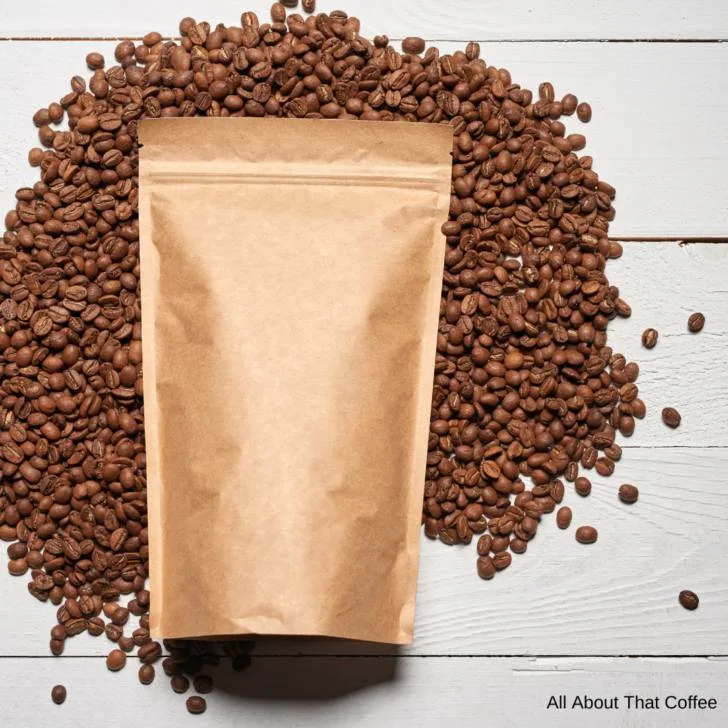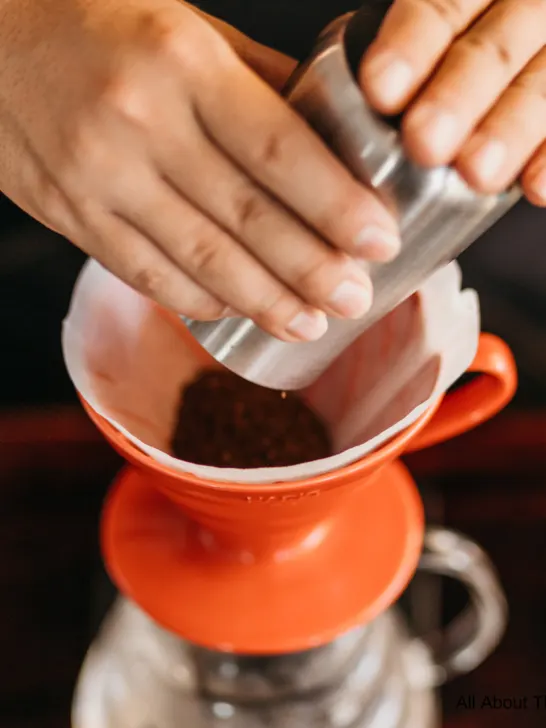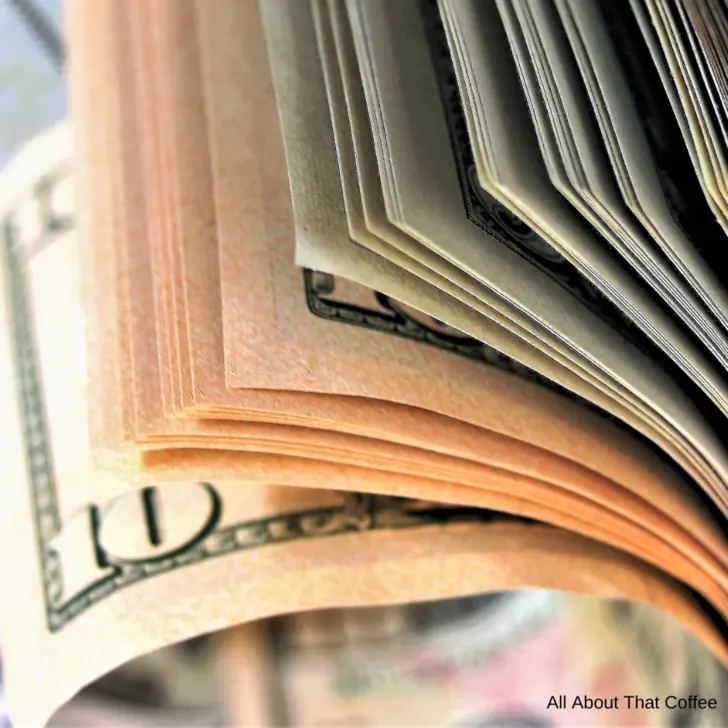Table of Contents
There is a lot of debate in the coffee world about craft coffee vs specialty coffee and what each term actually means.
Coffee is one of the most popular beverages in the world, with millions of people drinking it every day. However, not all coffee is created equal. The terms “craft coffee” and “specialty coffee” are often used to describe two different approaches to making and serving coffee.
Craft coffee is generally associated with small-batch, artisanal roasting, and brewing methods.
Specialty coffee is often characterized by the use of high-quality beans, strict quality standards, and precise brewing techniques. Others think that it simply means coffee that is roasted and packaged professionally.
In this blog post, we will explore the difference between craft coffee and specialty coffee, and see which one comes out on top!
What is Craft Coffee?

Craft coffee is typically associated with small-batch, artisanal roasting, and brewing methods. The focus is on creating unique, hand-crafted blends that showcase the character and flavor of each individual bean.
Many craft coffee roasters use single-origin beans that are sourced directly from farmers. The beans are roasted in small batches to ensure freshness and consistency.
One of the benefits of craft coffee is that it often allows for greater creativity and experimentation in terms of flavor and brewing methods. Many craft coffee roasters pride themselves on creating unique and innovative blends that showcase the full range of flavors and aromas in the beans they use.
However, there are also some drawbacks to craft coffee. For one, it can be expensive, as the small-batch roasting and brewing methods used by craft coffee roasters are often more time-consuming and labor-intensive than mass-production methods.
Additionally, the taste and quality of craft coffee can vary widely depending on the skill and experience of the roaster and barista. Finding consistently high-quality craft coffee can be a challenge.
What is Specialty Coffee?

Specialty coffee is typically characterized by the use of high-quality beans, strict quality standards, and precise brewing techniques.
The Specialty Coffee Association defines specialty coffee as “coffee that is graded at least 80 points on a 100-point scale by a licensed coffee grader.”
Specialty coffee beans are often sourced from specific regions or farms. The beans are carefully selected and graded based on factors such as flavor, aroma, and acidity.
Specialty coffee roasters typically use precise roasting techniques to bring out the unique flavors and characteristics of each bean. The coffee is brewed using precise measurements and techniques to ensure consistency and quality.
One of the benefits of specialty coffee is that it is often of very high quality, with a consistent flavor profile that is easy to replicate. This makes it a popular choice for coffee shops and cafes that want to ensure that their customers have a consistently high-quality coffee experience.
Additionally, specialty coffee is often more sustainable and socially responsible than other types of coffee. Many specialty coffee roasters prioritize ethical sourcing and environmental sustainability.
However, there are also some drawbacks to specialty coffee. For one, it can be expensive, as the high-quality beans and precise brewing methods used in specialty coffee production are often more expensive than mass-production methods.
Additionally, some people may find that the consistent flavor profile of specialty coffee can be somewhat predictable or boring compared to the more diverse range of flavors and aromas found in craft coffee.
Craft Coffee vs. Specialty Coffee: Which is Better?

Ultimately, the choice between craft coffee and specialty coffee comes down to personal preference. Some people may prefer the unique flavors and aromas found in craft coffee, while others may prefer the consistent quality and flavor profile of specialty coffee.
That being said, there are some factors that may influence your decision.
Sourcing
If you value sustainability and ethical sourcing, specialty coffee may be the better choice, as many specialty coffee roasters prioritize these values.
Flavor and Aroma
If you are looking for a more diverse range of flavors and aromas, craft coffee may be the way to go.
Context
Additionally, it’s worth considering the context in which you are drinking your coffee.
If you are at a coffee shop or café, you may be more likely to find high-quality specialty coffee. These establishments often prioritize consistency and quality.
However, if you are brewing coffee at home, you may have more opportunities to experiment with different types of craft coffee and brewing methods.
Price

Another factor to consider is price. Both craft coffee and specialty coffee can be expensive, but craft coffee may be more expensive overall. The small-batch roasting and brewing methods used by craft coffee roasters are often more labor-intensive and time-consuming.
Specialty coffee, on the other hand, may be more expensive on a per-pound basis. The high-quality beans used in specialty coffee production can be more expensive than mass-produced coffee.
Ultimately, the choice between craft coffee and specialty coffee will depend on your personal preferences and priorities.
If you are someone who values uniqueness and experimentation, craft coffee may be the way to go. However, if you are looking for consistent quality and a more predictable flavor profile, specialty coffee may be the better choice.
Is Craft Coffee and Specialty Coffee The Same as Third Wave Coffee?
No, Craft Coffee and Specialty Coffee are not the same as Third Wave Coffee.
While all three types of coffee focus on high-quality beans, roasting techniques, and preparations, there are distinct differences between them.
Craft Coffee
This is a term used to describe artisanal and small-batch coffee that is typically produced by independent, family-owned businesses.
Craft coffee producers source their beans from specific farms or regions in order to create unique blends with intense flavor profiles.
Additionally, craft coffee often involves traditional roasting techniques in order to bring out the best flavors from the beans.
Specialty Coffee
Specialty coffee is similar to craft coffee in that it focuses on high-quality beans and flavorful roasts. However, specialty coffee is often created for mass production and distribution.
To be considered specialty grade, the beans must meet certain criteria such as having zero defects and possessing an overall flavor score of 80 or higher.
Specialty coffees may come from single-origin regions or be blended from multiple sources depending on the desired flavor profile.
Third-Wave Coffee
Third-wave coffee takes craftsmanship and quality even further by focusing on process transparency, sustainability, education, and appreciation of tastes unique to each bean varietal.
Producers source their beans exclusively from farms they have a relationship with so they know exactly where their beans come from and how they were grown.
Third-wave coffees are prepared with precision using special brewing methods in order to highlight subtle notes that can easily be lost when using traditional brewing methods.
Tips for Choosing High-Quality Coffee

Regardless of whether you choose craft coffee or specialty coffee, there are some tips you can use to ensure that you are getting the highest-quality coffee possible.
Here are a few things to look for when selecting coffee:
Look for fresh beans:
Coffee is at its best when it is fresh, so look for beans that have been recently roasted. Check the roast date on the packaging or ask the roaster when the beans were roasted.
Consider the source:
The quality of the beans is a key factor in determining the quality of the coffee, so look for beans that have been sourced from high-quality farms and regions.
Consider the roast:
The way the beans are roasted can have a big impact on the flavor of the coffee, so look for beans that have been roasted in a way that brings out the flavors and aromas you enjoy.
Consider the brewing method:
The way the coffee is brewed can also have a big impact on the flavor of the coffee, so consider the brewing method when selecting coffee. If you prefer a specific brewing method, such as pour-over or French press, look for beans that are recommended for that method.
Consider your preferences:
Ultimately, the best coffee is the coffee that you enjoy drinking. Consider your personal preferences when selecting coffee and don’t be afraid to experiment with different types of coffee until you find the one that’s right for you.
Conclusion
Craft coffee and specialty coffee are two different approaches to making and serving coffee, each with their own benefits and drawbacks.
Craft coffee is characterized by small-batch, artisanal roasting and brewing methods, while specialty coffee is characterized by high-quality beans, strict quality standards, and precise brewing techniques.
Ultimately, the choice between craft coffee and specialty coffee comes down to personal preference.
Both types of coffee can be of very high quality, so it’s worth experimenting with both to find the one that’s right for you. When selecting coffee, consider the freshness of the beans, the source and roast of the beans, the brewing method, and your personal preferences.
With a little experimentation, you’re sure to find the perfect cup of coffee.
Thanks for reading!
Happy brewing! Happy sipping!
P.S. Be sure to check out our other coffee-related articles for more information, as well as more tips and tricks on making the perfect cup of joe and to learn “All About That Coffee.”

